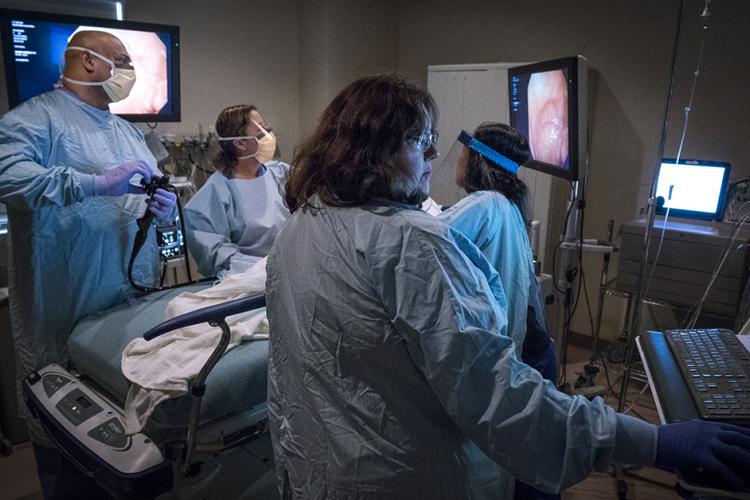
Surgeons at JPS Health Network are considering the addition of a step to their pre-op process they hope will serve as an important additional layer of safety for patients.
Under the new practice, any member of a surgical team would be invited and encouraged, without repercussion, to speak up if they have a safety concern before -- or during -- an operation.
“In the past, the captain was in charge of his ship or his plane and no one was allowed to question him,” said Dr. Rajesh Gandhi, Medical Director of Trauma Services at JPS. “Sometimes, that’s how accidents happen. Things have changed over the years and now captains are a part of the team, so everyone has a say about what’s going on. We’re trying to create a similar culture here where every person on a surgical team is empowered to speak up about things that concern them.”
Gandhi said he added a line to his pre-op time out on an experimental basis last week, asking members of his team to speak up if they had any concerns before an operation starts or at any time during the procedure. While no one had any issues to bring forward during those operations, Gandhi said members of the surgical teams he worked with those days were enthusiastic about being asked for their input.
An example of a situation where the new procedure could be helpful is if a member of the team noticed the surgeon touch something that wasn’t sterile before an operation started, according to Gandhi. It’s a simple – but important – thing that could have a major impact in the patient’s outcome. Dr. G. Robert Stephenson, Vice Chief of Surgery for Quality, Safety and Patient Experience gave the example of a member of a surgical team noticing in the middle of a procedure that the cord for an operating room machine was frayed, causing the potential for the device to fail.
While it might seem like a no-brainer that a member of the surgical team would speak up if he or she saw something amiss, historically, there has been a hierarchy in operating rooms that placed the surgeon above everyone else, Stephenson said. If a member of the supporting staff contradicted, interrupted or otherwise distracted the doctor by talking out of turn while he or she was working, they could find themselves in trouble or even out of a job.
“It’s been realized through the years that it was better to view members of a surgical team as equally important, but in different roles,” said Stephenson. “We’re all working together, and that is what creates a just culture and a safety culture.”
It’s impossible for a surgeon, who has his eyes on the sterile field where the operation is taking place, to stay on top of other things that are happening around him and behind him, according to Stephenson. Instead of a warning causing a distraction, the surgeon’s knowledge that other people are watching out, too, allows full concentration on the patient.
“Instead of relying on one pair of eyes for everything, it’s better to have everyone’s eyes and ears working together,” Stephenson said.
Dr. Brian Webb, Chairman of Orthopedic Surgery at JPS, said he’s encouraged his OR teams for years to speak up if they see an issue. He’s in favor of the practice becoming an official procedure at JPS.
“I think it is key that the hospital has bought into these high-reliability, and fundamental procedures to make sure doctors, nurses, scrub techs and everyone else on the surgical team is on the same page,” Webb said. “We’re committed to doing everything we can for the safety of the patient.”
The official adoption of the new procedure will be taken up by the OR Operations Committee at its December 10 meeting and by the Surgery Department at its meeting Dec. 12.
